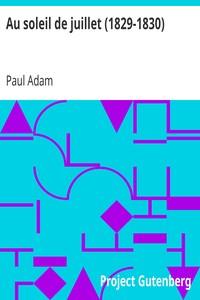|
|
Read this ebook for free! No credit card needed, absolutely nothing to pay.Words: 31179 in 7 pages
This is an ebook sharing website. You can read the uploaded ebooks for free here. No credit cards needed, nothing to pay. If you want to own a digital copy of the ebook, or want to read offline with your favorite ebook-reader, then you can choose to buy and download the ebook.

: A Vindication of England's Policy with Regard to the Opium Trade by Haines Charles Reginald - Opium trade@FreeBooksWed 07 Jun, 2023 Opium a powerful Medicine.--Its Alkaloid constituents.--How used.--Distinction between eating and smoking it.-- Consumed in India, Turkey, Armenia, England pp. 37-52 Indian Opium of two kinds, Bengal and Malwa.--Monopoly in 1773.--Vacillations in Policy.--Hence fluctuations in Revenue.--Reserve Stock.--Land under Cultivation.--Chests exported.--Policy towards Native States.--Prices.-- Quality.--Competition with Chinese Opium pp. 52-59 Abolition of the Traffic.--How far desirable.-- Difficulties.--England not likely to help with a Money-grant.--Charges made by Anti-Opiumists.--1. "Opium a poison and Opium-smoking universally baneful."-- Evidence on this point breaks down.--Not so fatal as Spirits with us.--Number of Smokers of Indian drug.--Use of Opium in the Straits Settlements pp. 59-75 Remedies suggested.--Firstly, Abolition of Monopoly.-- Objections to this.--Secondly, Prohibition of Poppy-culture in all India.--Difficulties with Native States.--Legitimate requirements of India.--Financial objections.--Curtailment of Expenditure difficult.-- Increase of Taxation impossible.--Thirdly, England to ask for an equivalent from China for giving up the Opium Revenue.--No compensation to India.--Fourthly, Li Hung Chang's proposal pp. 114-129 A VINDICATION OF ENGLAND'S POLICY WITH REGARD TO THE OPIUM TRADE. Again there has been a debate in Parliament on the opium traffic: again has the same weary series of platitudes and misrepresentations been repeated, and no one has taken the trouble to defend the policy of England as it should and can be defended. But it is high time that the falsities and the fallacies of the statements of the Anti-opium Society should be exposed, and that everyone to the best of his ability should enlighten the people of England on a subject which so nearly concerns the honour of our country. Isolated voices have indeed been raised to protest against the views disseminated by the Society for the Abolition of the Opium Trade; but these efforts have been too few and far between to reach the mass of the nation. At present the agitators have it all their own way. The majority of people, having heard nothing but what the agitators have told them, denounce the iniquitous traffic with a fervour that varies proportionately with their ignorance. In contemplating the success of this misdirected enthusiasm we are irresistibly reminded of a very "judicious" remark of Hooker's, who says: "Because such as openly reprove supposed disorders of State are taken for principal friends to the common benefit of all, and for men that carry singular freedom of mind; under this fair and plausible colour whatsoever they utter passeth for good and current." Since then, however, the agitation has taken a more organized form, and there is now a society for the suppression of the trade, numbering its hundreds of supporters, and linked with the names of such men as Lord Shaftesbury, Cardinal Manning, Sir J. W. Pease, and Sir Wilfrid Lawson. Nearly the whole of the clergy from the Archbishops downwards, and ministers of every denomination, have declared for the same side. Add to this that the Society has a large income, derived from voluntary subscriptions, which is assiduously employed in the dissemination of its peculiar doctrines. The country is flooded with tracts, pamphlets, reports of addresses, speeches, and petitions, all inculcating the same extreme opinions. It may, then, be taken for granted that opium-smoking was known to the Chinese long before European nations took to importing opium into China. But at the same time no one will deny that the habit has become enormously more prevalent than it used to be. In 1796, however, the first year of Keaking's reign, the importation of opium was prohibited by the Government at Pekin, under heavy penalties, for the alleged reason "that it wasted the time and property of the people of the Inner Land, leading them to exchange their silver and commodities for the vile dirt of the foreigner." In 1816 the Bengal drug first began to suffer from competition with Malwa and Turkey opium, the latter brought from Madeira in American as well as British ships. In 1821 the exportation of Bengal opium had sunk to 2,320 chests, when the Chinese commenced vigorous proceedings against smugglers, and drove the contraband trade to Lintin, an island forty miles from Canton. This seems to have given a fresh impetus to the trade, for the export rose at once to 6,428 chests, and by 1831 to more than 20,000: at which number it remained till Lin's raid in 1839, when 20,291 chests were delivered up and destroyed in the Canton waters. It is clear, then, that no force came into play at all, except it were the force of circumstances, and opium--like all other articles except munitions of war and salt, which remained contraband--was admitted under a fixed tariff. This in the case of opium was fixed at thirty taels per picul , and it was further agreed that opium should only be sold at the port; that the likin or transit dues should be regulated as the Chinese Government thought fit. The terms of this tariff were to be revisable after the lapse of ten years. But to return to the history of the foreign trade. As was mentioned above, the Chinese Commissioners of their own accord fixed the tariff duty upon opium at thirty taels. But, though bound, as they were by their own act, to admit opium at this rate, as soon as it passed into native hands they had power to tax it as they pleased, and they did not fail to profit by their power, though this likin tax varied considerably at the different ports in accordance with the necessities of the provincial governments. It is difficult to estimate the revenue obtained by China from the foreign opium trade, but it is probably close upon two millions sterling. That the Chinese Government were not satisfied with this amount, compared with the profits gained by India, is quite clear; and we find accordingly that various efforts were made by them, subsequent to 1869, to have the tariff agreed upon in the Treaty of Tientsin revised. But it was not till 1876 that any definite agreement was come to between the two Governments. In September of that year Sir Thomas Wade, Secretary Li, and Prince Kung concluded a convention, by which China opened four new ports and six places of call on the great river, while Sir Thomas Wade agreed to recommend to his own Government, and through it to all the Treaty Powers, the limitation of the area, within which imports should be exempt from likin, to the actual space occupied by the foreign settlements. As the treaty regulations then stood, imports, except opium, after paying their regular import duty, were not liable to likin or transit dues till they reached a certain barrier at some distance inland. Opium could be taxed as soon as it left the importer's hands. But this right, which applied to opium only, had been used by the Chinese against all imports, a clear infraction of treaty which the German Consul, among others, had protested against. But as some doubt existed as to where the first inland barrier really stood, Sir Thomas Wade proposed to make the circuit of the foreign settlement the limit of exemption from duty. But foreseeing that, if the likin Collectorate were banished from the port-areas, opium would evade paying the likin tax, he proposed also to recommend that the likin, as well as the import duty, on opium should be collected by the foreign Inspectorate, and that for this purpose the opium should be bonded in a warehouse or receiving hulk till such time as the importer had paid the import due and the purchaser had paid the likin. He further proposed as a fair likin tax forty taels per picul on all Indian opium, that brought to Hongkong included. Thus the whole duty on opium would be seventy taels a picul, which would yield 6,117,930 taels, or a million more than under the old system. But the Chinese Commissioner, Prince Kung, objected to a uniform duty of forty taels, as too low, and suggested sixty taels a picul, or an adherence to the different rates prevailing in different ports. Sir Thomas Wade, though averse to the higher uniform rate, was willing to consider the other alternative, provided that he were informed of the exact position of the next inland Collectorate, and the amount of rates levied. Further, the Chinese Government must guarantee that no second Collectorate should be established between the port Collectorate and the first of the present inland Collectorates. It was agreed by the Chefoo Convention that this collection of the dues on opium by the foreign customs under these conditions should be tried for five years at Shanghae. Free books android app tbrJar TBR JAR Read Free books online gutenberg More posts by @FreeBooks
: The Vagabond in Literature by Compton Rickett Arthur - English literature 19th century History and criticism; Bohemianism@FreeBooksWed 07 Jun, 2023

: Oahu Traveler's guide by Gleasner Bill Gleasner Diana C - Oahu (Hawaii) Guidebooks@FreeBooksWed 07 Jun, 2023
|
Terms of Use Stock Market News! © gutenberg.org.in2025 All Rights reserved.






